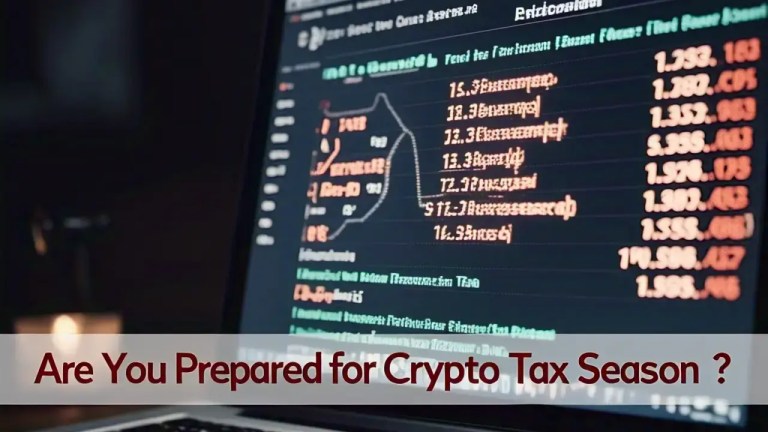
How to Spend Bitcoin: A Complete Guide
Discover how to spend Bitcoin in the real world and online. Learn where to spend Bitcoin and how Bitcoin debit cards make spending easier.
Can You Really Spend Bitcoin?
Back in 2009, Bitcoin had no real use beyond digital transactions between enthusiasts. Fast forward to today, and you can spend Bitcoin at businesses around the world.
From travel bookings to retail stores and even luxury real estate, Bitcoin has become a recognised method of payment. Even better, Bitcoin debit cards now allow you to spend Bitcoin anywhere Visa and MasterCard are accepted.
In this guide, we’ll cover:
- Where you can spend Bitcoin today
- How to spend Bitcoin at checkout (online and in stores)
- The easiest way to spend Bitcoin with debit and credit cards
Let’s dive in!
Where Can You Spend Bitcoin?
A growing number of businesses now accept Bitcoin as a direct payment option. Some of the biggest companies accepting Bitcoin include:
Online and Retail Stores Accepting Bitcoin
- Microsoft – Buy software, apps, and Xbox credit.
- Expedia – Book flights and hotels using Bitcoin.
- Newegg – Purchase electronics and gadgets.
- Overstock – Shop for home goods and furniture.
- Shopify – Some Shopify stores accept Bitcoin payments.
- Subway – Some franchises allow Bitcoin transactions.
- Wikipedia – Accepts Bitcoin donations.
- Tesla – Occasionally accepts Bitcoin for vehicle purchases.
- Golden Gate Hotel & Casino (Las Vegas) – Pay for stays and services with Bitcoin.
- T-Mobile Poland – Mobile services paid in Bitcoin.
- eGifter – Buy gift cards with Bitcoin.
And this list is growing every day!

Spend Bitcoin for Everyday Payments
Even if a store doesn’t accept Bitcoin directly, you can still spend Bitcoin for everyday purchases with the help of Bitcoin debit cards.
How to Spend Bitcoin in Stores
Bitcoin payments in physical stores work similarly to contactless payments. Here’s how:
- The retailer’s point-of-sale system will generate a QR code.
- Open your Bitcoin wallet on your phone.
- Scan the QR code with your wallet app.
- Confirm the amount and approve the transaction.
Within seconds, you have successfully spent Bitcoin!
How to Spend Bitcoin Online
Buying goods and services online with Bitcoin is simple:
- At checkout, select Bitcoin as your payment method.
- The website will display a Bitcoin wallet address (a long string of letters and numbers).
- Copy and paste this address into your Bitcoin wallet’s Send To field.
- Enter the amount and confirm the payment.
That’s it! Most transactions are completed within minutes, making it easy to spend Bitcoin on online shopping.
Spending Bitcoin with a Debit or Credit Card
Bitcoin debit and credit cards make it even easier to spend Bitcoin in everyday life. These cards function like traditional Visa or MasterCard debit cards, but they are funded with Bitcoin.
How Bitcoin Debit Cards Work
- Load your Bitcoin card – Convert Bitcoin into fiat currency (USD, GBP, EUR, etc.).
- Use it anywhere – Spend Bitcoin just like you would with a regular debit card.
- Instant conversions – The card provider automatically converts your Bitcoin into fiat at the time of purchase.
Advantages of Bitcoin Debit Cards
✅ No need for special hardware – Works with any Visa or MasterCard terminal.
✅ No QR codes required – Just swipe, tap, or enter your card details.
✅ Accepted worldwide – Use it at over 50 million merchants.
✅ Lower foreign exchange fees – Often cheaper than traditional bank cards.
Popular Bitcoin debit cards include Coinbase Card, Crypto.com Card, and Binance Card.
Final Thoughts: The Future of Spending Bitcoin
Spending Bitcoin has never been easier. Whether you’re using direct payments, scanning QR codes, or paying with a Bitcoin debit card, cryptocurrency is quickly becoming a mainstream payment option.
As more businesses embrace Bitcoin, the opportunities to spend Bitcoin will only increase. So, whether you’re shopping online, dining out, or travelling, you can easily spend Bitcoin as a viable and convenient way to pay.
Secure Your Crypto with a Cold Wallet
Keeping your crypto safe is more important than ever. With the rise of ETF staking and institutional adoption, protecting your Ethereum and other digital assets should be a top priority.
A cold wallet ensures that your funds remain safe from hacks, scams, and online threats. Unlike hot wallets, which are connected to the internet, cold wallets keep your private keys offline, offering maximum security.
🔒 Top Cold Wallets to Consider:
👉 Ledger Stax – A – A next-gen E Ink touchscreen wallet designed for seamless crypto security.
👉 Trezor Safe 5– A highly secure hardware wallet with advanced protection features.
Don’t leave your crypto at risk. Invest in a cold wallet today and take control of your digital assets! 🚀
How to Spend Bitcoin – Quiz: Test Your Knowledge!
Answer the following questions in 2-3 sentences each:
- What are some of the major companies where you can spend Bitcoin?
- How can you spend Bitcoin for in-store purchases?
- What is the role of QR codes when spending Bitcoin?
- How does a Bitcoin debit card work?
- What are the advantages of using a Bitcoin debit card over direct payments?
- Can Bitcoin be used for online purchases? How?
- What types of stores currently allow you to spend Bitcoin?
- How do Bitcoin transactions compare to traditional credit card transactions?
- What are the risks of spending Bitcoin?
- How is the acceptance of Bitcoin as a payment method expected to change in the future?
How to Spend Bitcoin – Quiz Answer Key:
- Microsoft, Tesla, Expedia, Overstock, and Shopify are just a few of the major companies where you can spend Bitcoin.
- To spend Bitcoin in stores, open your wallet, scan the QR code at checkout, and confirm the payment.
- QR codes allow Bitcoin wallets to quickly retrieve a retailer’s address, simplifying transactions.
- A Bitcoin debit card converts Bitcoin to fiat in real-time, allowing users to shop anywhere Visa and MasterCard are accepted.
- Bitcoin debit cards eliminate the need for QR codes and are accepted by any retailer that accepts traditional payment cards.
- Yes, many online merchants allow you to spend Bitcoin through wallet address payments or third-party payment processors.
- Electronics, travel, luxury goods, and even some fast-food restaurants allow you to spend Bitcoin.
- Bitcoin transactions are irreversible and do not require intermediaries like banks, unlike credit card transactions.
- Bitcoin payments may be subject to volatility, network fees, and security risks if not stored properly.
- With increasing adoption, Bitcoin is expected to become a standard payment method across many industries.
Sign up to the Newsletter
Glossary of Terms:
Bitcoin (BTC)
A decentralised digital currency that allows peer-to-peer transactions over the Bitcoin network, without the need for intermediaries like banks.
Blockchain
A distributed ledger technology that records all transactions across a network of computers. It ensures transparency, security, and immutability.
Wallet
A digital tool used to store, send, and receive Bitcoin. There are two main types: hot wallets (online) and cold wallets (offline).
Hot Wallet
A cryptocurrency wallet connected to the internet, offering convenience for quick transactions but being more susceptible to hacking.
Cold Wallet
A secure, offline wallet that stores Bitcoin private keys away from the internet, providing enhanced security against online threats.
Merchant Adoption
The process by which businesses start accepting Bitcoin as a method of payment for goods and services.
Lightning Network
A second-layer scaling solution built on top of the Bitcoin blockchain, designed to enable faster and cheaper transactions.
Bitcoin ATMs
Physical machines that allow users to buy or sell Bitcoin using cash or debit/credit cards. Some ATMs also offer the option to withdraw Bitcoin.
P2P (Peer-to-Peer)
A network or system where Bitcoin transactions occur directly between users without the need for centralised intermediaries.
Bitcoin Payment Gateway
A service that facilitates businesses in accepting Bitcoin payments. It converts Bitcoin into local currency, making it easier for merchants to accept digital assets.
Decentralised Finance (DeFi)
A movement that leverages blockchain technology to recreate traditional financial services, such as lending, borrowing, and trading, without centralised authorities.
Stablecoins
Cryptocurrencies pegged to a stable asset like the US dollar, which aim to reduce volatility and are often used for Bitcoin transactions as a stable medium of exchange.
NFT (Non-Fungible Token)
A unique digital asset that represents ownership of a specific item or piece of content, often bought with Bitcoin in certain marketplaces.
Blockchain Explorer
A tool used to search and verify Bitcoin transactions on the blockchain.
Decentralised Exchanges (DEX)
Platforms that allow users to trade Bitcoin and other cryptocurrencies directly with each other without centralised control.








